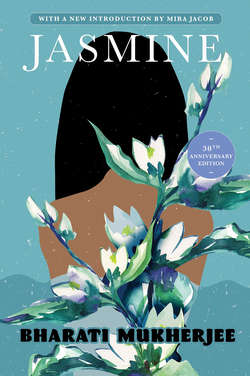Читать книгу Jasmine - Bharati Mukherjee - Страница 10
6
ОглавлениеIN a makeshift birthing hut in Hasnapur, Jullundhar District, Punjab, India, I was born the year the harvest was so good that even my father, the reluctant tiller of thirty acres, had grain to hoard for drought. If I had been a boy, my birth in a bountiful year would have marked me as lucky, a child with a special destiny to fulfill. But daughters were curses. A daughter had to be married off before she could enter heaven, and dowries beggared families for generations. Gods with infinite memories visited girl children on women who needed to be punished for sins committed in other incarnations.
My mothers past must have been heavy with wrongs. I was the fifth daughter, the seventh of nine children.
When the midwife carried me out, my sisters tell me, I had a ruby-red choker of bruise around my throat and sapphire fingerprints on my collarbone.
When I revealed this to Taylor’s wife, Wylie—I was their undocumented “caregiver” during my years in Manhattan—she missed the point and shrieked at my “foremothers.” Listening to Wylie I thought I understood the philosophy behind Agent Orange. Wylie would overkill. My mother was a sniper. She wanted to spare me the pain of a dowryless bride. My mother wanted a happy life for me.
I survived the sniping. My grandmother may have named me Jyoti, Light, but in surviving I was already Jane, a fighter and adapter.
God’s cruel, my mother complained, to waste brains on a girl. And God’s still more cruel, she said, to make a fifth daughter beautiful instead of the first. By the time my turn to marry came around, there would be no dowry money left to gift me the groom I deserved. I was seven then, a reader, a counter, a picture drawer to whom Masterji, the oldest and sourest teacher in our school (B. A. Patiala, failed), lent his own books. I was a whiz in Punjabi and Urdu, and the first likely female candidate for English instruction he’d ever had. He had a pile of English books, some from the British Council Library, some with USIS stickers. I remember a thin one, Shane, about an American village much like Punjab, and Alice in Wonderland, which gave me nightmares. The British books were thick, with more long words per page. I remember Great Expectations and Jane Eyre, both of which I was forced to abandon because they were too difficult.
God is cruel to partition the country, she said, to uproot our family from a city like Lahore where we had lived for centuries, and fling us to a village of flaky mud huts. In Lahore my parents had lived in a big stucco house with porticoes and gardens. They had owned farmlands, shops. An alley had been named after a great-uncle. In our family lore Lahore was magic and Lahore was chaos.
Mataji, my mother, couldn’t forget the Partition Riots. Muslims sacked our house. Neighbors’ servants tugged off earrings and bangles, defiled grottoes, sabered my grandfather’s horse. Life shouldn’t have turned out that way! I’ve never been to Lahore, but the loss survives in the instant replay of family story: forever Lahore smokes, forever my parents flee.
Nothing is fair. God is cruel. Now I hear these words as love’s refrain. Mataji loved me fiercely. Love made her panic at what was in store. All over our district, bad luck dogged dowryless wives, rebellious wives, barren wives. They fell into wells, they got run over by trains, they burned to death heating milk on kerosene stoves. She scolded my father into letting me stay in school after classes were over and daze myself with Masterji’s hoard of English-language books.
* * *
My father was a man who had given up long before I was born. People said of him that he looked like a Lahori landlord; refined, delicate of feature. He maintained authority even while lacking a position. I have his looks. Except when it was absolutely necessary to plant or to harvest, he would lie on a charpoy under a flowering jasmine tree all day. Even without money he dressed well, in what he insisted were the last of his old Lahore kurtas.
He would tune in to the Pakistani radio broadcasts from Lahore, and listen for their Punjabi-language shows. The names of those singers and actors from the Pakistan side were more familiar to me, growing up, than their Indian counterparts. Otherwise, he detested Urdu and Muslims, which he naturally associated with the loss of our fortune. He refused to speak Hindi as well, considering it the language of Gandhi, the man who had approved the partition of Punjab and the slaughter of millions. After fleeing Lahore, Pitaji had been cast adrift in an uncaring, tasteless, corrupt, coarse, ignorant world.
“These Bombay mangoes would choke a goat!” he’d say when I brought him the Alphonsos I’d haggled smartly for in the bazaar. He said the Punjabi you heard a beggar mutter by the trash pits of Lahore was poetry compared to the crow-talk Punjabi of the richest merchants in Jullundhar and Hasnapur. “You should have heard those Lahori barristers and politicians give speeches. Their words had wings.” Lahore visionaries, Lahore women, Lahore music, Lahore ghazals: my father lived in a bunker.
Fact is, there was a difference. My father was right to notice it and to let it set a standard. But that pitcher is broken. It is the same air this side as that. He’ll never see Lahore again and I never have. Only a fool would let it rule his life.
